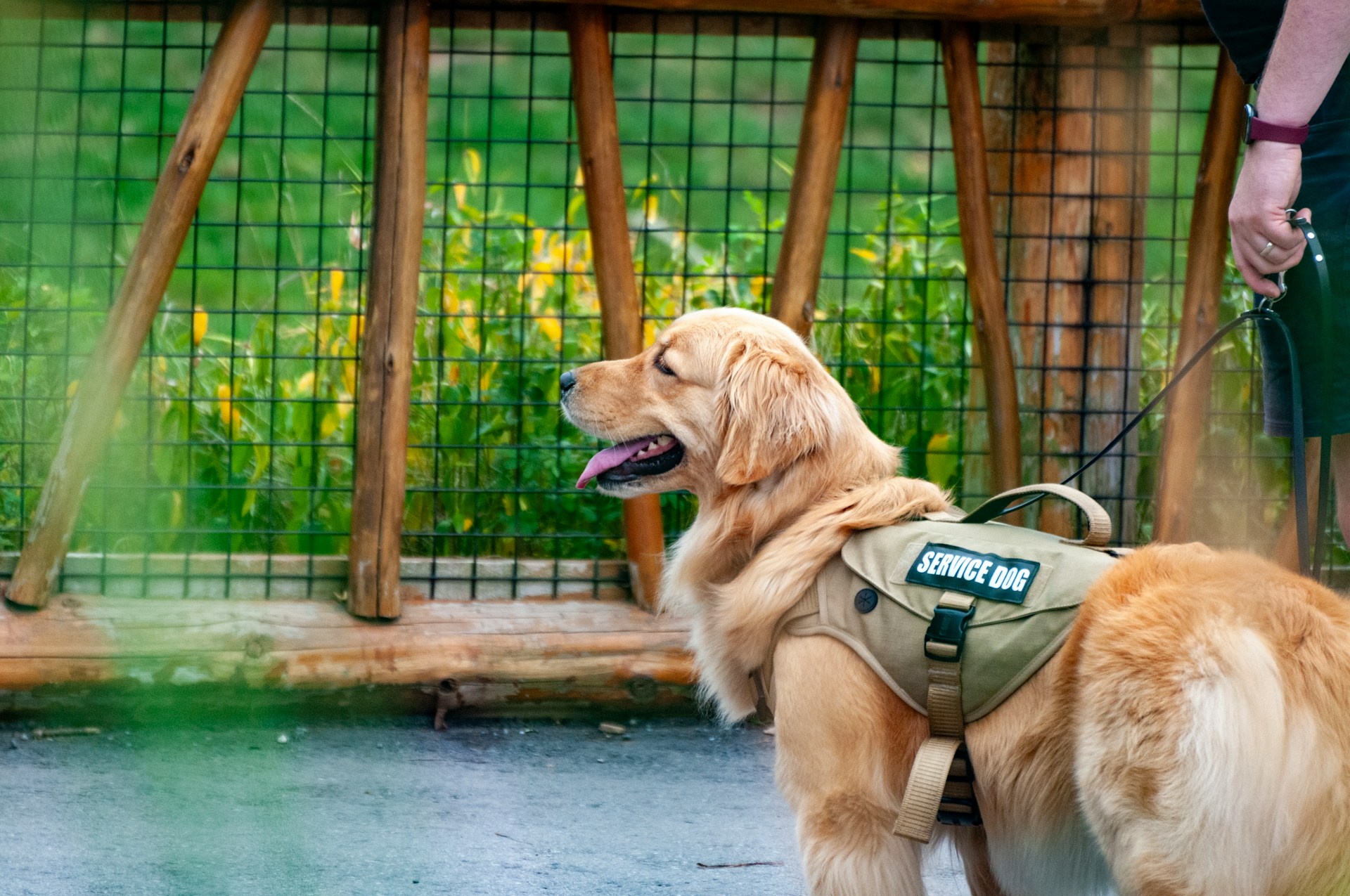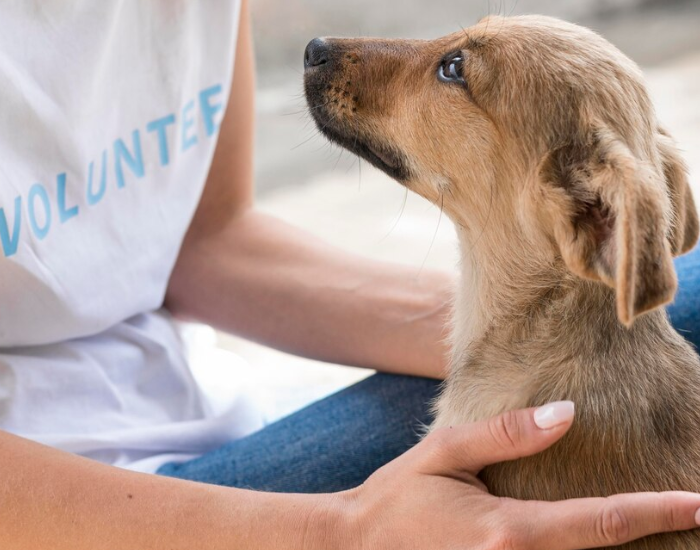Psychiatric assistance dogs are trained to assist individuals with psychiatric disabilities such as anxiety, depression, and post-traumatic stress disorder (PTSD). These dogs are trained to perform tasks that mitigate the symptoms of these disabilities, and they can provide emotional support and companionship. However, choosing the right breed for a psychiatric assistance dog can be challenging, as there are many factors to consider. In this blog post, we will discuss how to choose the right breed for your psychiatric assistance dog.
Factors to Consider When Choosing a Breed for Your Psychiatric Assistance Dog
1. Temperament
The temperament of a dog is one of the most important factors to consider when choosing a breed for a psychiatric assistance dog. Dogs that are calm, friendly, and obedient are ideal for individuals with psychiatric disabilities. It is important to choose a dog that is not easily spooked or frightened, as this can trigger anxiety in their handler. Additionally, dogs that are aggressive or overly dominant should be avoided, as they can be difficult to train and may not be suitable for individuals with certain psychiatric disabilities.
2. Size
The size of a dog is another important factor to consider when choosing a breed for a psychiatric assistance dog. Small dogs are often preferred by individuals with psychiatric disabilities because they are easier to manage and can be more easily accommodated in smaller living spaces. However, larger dogs can provide more physical support and may be better suited for individuals with mobility issues or balance problems.
3. Energy Level
The energy level of a dog is another important factor to consider when choosing a breed for a psychiatric assistance dog. Dogs that are high energy may not be suitable for individuals with certain psychiatric disabilities, as they may be too active and require too much attention. Conversely, dogs that are low energy may not be suitable for individuals who need more physical support or who enjoy outdoor activities.
4. Trainability
The trainability of a dog is an important factor to consider when choosing a breed for a psychiatric assistance dog. Dogs that are easy to train and respond well to positive reinforcement are ideal for individuals with psychiatric disabilities, as they can be trained to perform specific tasks that mitigate the symptoms of these disabilities. Additionally, dogs that are easily distracted or difficult to train may not be suitable for individuals with certain psychiatric disabilities.
5. Coat Type
The coat type of a dog is another important factor to consider when choosing a breed for a psychiatric assistance dog. Dogs with thick, long coats may not be suitable for individuals with allergies or who live in warmer climates. Additionally, dogs with short coats may not be suitable for individuals who require more physical support, as their coats do not provide as much cushioning.
Best Breeds for Psychiatric Assistance Dogs
1. Golden Retriever
Golden Retrievers are one of the most popular breeds for psychiatric assistance dogs, and for good reason. They are calm, friendly, and easy to train, making them ideal for individuals with psychiatric disabilities. Additionally, they are medium-sized dogs that provide a good balance of physical support and manageability.
2. Labrador Retriever
Labrador Retrievers are another popular breed for psychiatric assistance dogs. They are friendly, loyal, and obedient, making them ideal for individuals with psychiatric disabilities. Additionally, they are medium-sized dogs that provide a good balance of physical support and manageability.
3. Standard Poodle
Standard Poodles are a lesser-known breed for psychiatric assistance dogs, but they are growing in popularity. They are intelligent, easy to train, and hypoallergenic, making them ideal for individuals with allergies or who live in warmer climates. Additionally, they are medium-sized dogs that provide a good balance of physical support and manageability.
4. Cavalier King Charles Spaniel
Cavalier King Charles Spaniels are a small breed that are ideal for individuals with psychiatric disabilities due to their calm and relaxed personality. They are also extremely affectionate and loyal, making them great companions. Additionally, they don’t require a lot of exercise or grooming, making them a good fit for individuals who cannot provide extensive care to their service dog.
5. German Shepherd
German Shepherds are an excellent choice for those looking for a service dog as they are extremely loyal and intelligent. Additionally, their thick coats provide protection from harsh temperatures which makes them great for year-round use as well. They are also easy to train and socialize and have a natural protectiveness which can help keep those with disabilities safe in certain situations.
6. Goldendoodles
Goldendoodles are becoming increasingly popular as service dogs due to their intelligence, gentle nature, and hypoallergenic fur. Goldendoodles have a great temperament which makes them easy to socialize with other people and animals. Additionally, their hypoallergenic coats make them an ideal choice for those who have allergies and need a service dog. They are also highly trainable and quick to learn commands, making them an excellent choice for a service dog.
7. Pomeranian
Pomeranians are small and energetic, making them an ideal companion for those with disabilities. They are also very intelligent and can be trained quickly to do basic tasks such as helping someone in a wheelchair or fetching medication. Pomeranians are also known for their loyalty and loving nature which makes them great service dogs that won't shy away from new people and experiences. They are also hypoallergenic, making them a great choice for those with allergies. With the proper training, Pomeranians can be excellent service dogs that offer comfort, companionship, and aid to their owners.
8. Bernese Mountain Dog
Bernese Mountain Dogs are an incredibly loyal breed of dog, making them great for those with disabilities. They are strong, powerful dogs that can assist someone in a wheelchair or walk alongside them as they navigate their daily life. Berners are also known to be very gentle and affectionate which makes them wonderful companions for those who need extra support. With the right training, they can be an excellent service dog that performs a variety of tasks. Additionally, Berners have thick coats that help keep them warm and protected in all types of environments, making them perfect for those who may need to venture outdoors more often.
9. Australian Shepherd
Australian Shepherds are another great breed for those with disabilities who need a loyal companion. These dogs are highly intelligent, making them easy to train and eager to follow commands from their owners. They have a natural herding instinct which can be harnessed to help someone with mobility issues, as well as serve other tasks such as opening doors or even helping pick up dropped items. They have a great sense of smell, helping them alert their owners to any potential dangers or hazards in their environment. Plus, they are incredibly loyal and affectionate companions who will make life easier for those with disabilities.
10. Havanese
Havanese are an ideal breed for those with disabilities who need a gentle, loving companion. They are known for their hypoallergenic coat and playful nature, making them perfect for those looking for an affectionate companion. Havanese are also highly intelligent, making them easy to train and eager to help out. This can be incredibly helpful for those with mobility issues, as they can be taught to open doors or help pick up dropped items. Havanese are also highly social and love interacting with people, making them great companions for those who need a little extra support.
By choosing the right breed, individuals with disabilities can gain invaluable assistance from an assistance dog that is ready to offer love, companionship, and aid. With the right training and plenty of love, these little dogs can make all the difference in someone's life.













